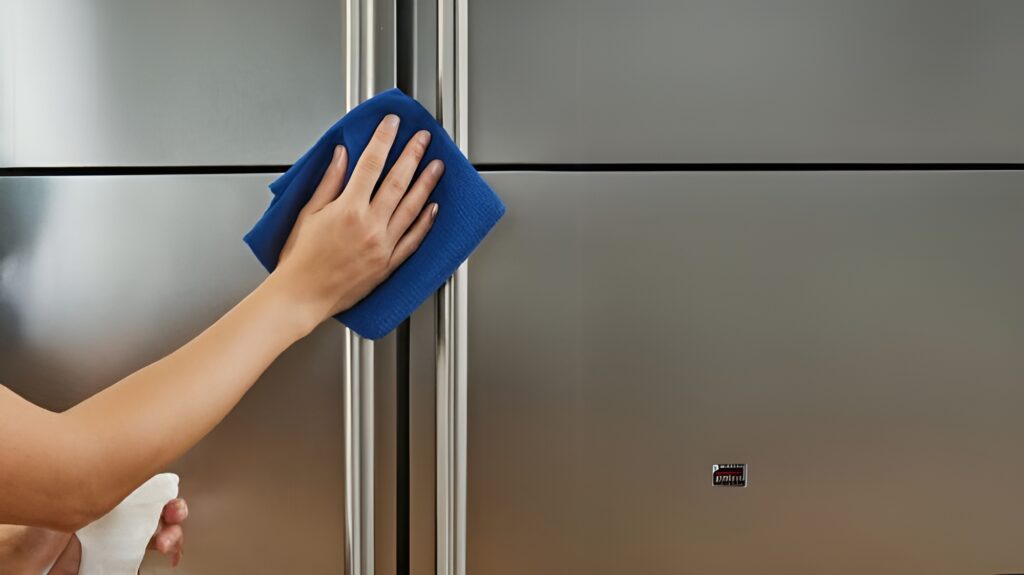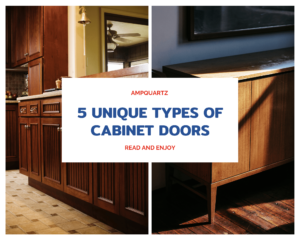Cleaning and Maintenance of kitchen cabinets are very important to ensure the longevity and usability of these items. There are a few ways that homeowners can utilise when it comes to taking care of their kitchen cabinets on a routinely basis. Here are 4 important cleaning and maintenance tips homeowners can incorporate when taking care of their aluminium kitchen cabinets.
Cleaning and Maintenance Tips 1: Using Gentle Cleaning Methods

A mild soap solution is an effective and gentle cleaning method which is deemed suitable for various surfaces including aluminium kitchen cabinets. It is relatively simple to create this solution which is by mixing a few drops of mild dish soap with warm water. The mild soap which is typically free of harsh chemicals and abrasives will ensure that the cleaning process does not damage the delicate look and feel of the cabinets.
Begin by dampening a soft cloth or sponge with the solution. Proceed to wipe down the cabinets gently, ensuring to go through all areas including handles and edges as these are places where grease and grime tends to accumulate from cooking. This method effectively removes grease, fingerprints and other light stains without causing any harm. Once the cabinets are properly wiped and cleaned, rinse the cloth or sponge with clean water and wipe the surfaces again to remove any soap residue that may have been left behind the first time. This step is crucial as leftover soap can attract more dirt or leave streaks which makes the appearance of the cabinet seem dull.
Finally, dry the cabinets thoroughly with a soft and dry cloth to prevent water spots and further enhance the shiny appearance often depicted by an aluminium material. Regular use of a mild soap solution helps maintain the pristine condition of aluminium cabinets; thus, preventing the buildup of stubborn grime and dirt — ensuring an overall hygienic kitchen environment. This simple yet efficient cleaning method extends the lifespan of aluminium cabinets which in turn helps in preserving their aesthetic appeal and functionality.
Furthermore, using a mild soap solution is environmentally friendly as it reduces the need for harsh chemical cleaners that can be harmful to both the environment and the user. In summary, a mild soap solution is a versatile and simple cleaning option that provides thorough cleaning without compromising the integrity of aluminium kitchen cabinets.
Cleaning and Maintenance Tips 2: Avoiding Abrasive Cleaners

Avoiding abrasive cleaners is crucial when maintaining the condition of aluminium kitchen cabinets. Abrasive and harsh cleaners which often contain intense chemicals or gritty substances may scratch and damage the surface of aluminium cabinets. These cleaners may offer powerful cleaning capabilities but their abrasive nature can lead to minor damages in the form scratches and dullness or even permanent damage that may affect the look and finish of the cabinet. Opting for gentle cleaning methods such as using a mild soap solution or specialised aluminium cleaners will ensure the cabinets are cleaned effectively without risking any external damage.
Abrasive cleaning items such as steel wool or rough sponges should also be avoided as they can cause more harm than good. These tools can strip away the protective coating of the aluminium material which can lead to increased amounts of stains, corrosion and accelerate wear and tear over time. Regular use of non-abrasive cleaning techniques such as a soft cloth or microfibre cloth alongside a gentle cleaner helps preserve the original shine and aesthetic appeal of aluminium cabinets. This approach not only maintains the cabinets appearance but also extends their lifespan; thus making them a long-lasting and durable choice for the kitchen.
Additionally, avoiding abrasive cleaners is an environmentally friendly practice. Many harsh cleaners contain chemicals that can be harmful to the environment. By choosing milder and more eco-friendly cleaning solutions, homeowners can maintain a healthy kitchen environment while encouraging sustainability.
In conclusion, avoiding abrasive and harsh cleaners is essential for the upkeep and maintenance of aluminium kitchen cabinets. By choosing gentler cleaning methods, homeowners further protect the cabinets from scratches, dullness and long-term damage. This not only ensures the cabinets remain attractive and functional but also promotes a more sustainable and eco-friendly cleaning routine. Prioritising non-abrasive cleaners is a simple yet effective way to preserve the beauty and durability of aluminium kitchen cabinets.
Cleaning and Maintenance Tips 3: Checking Parts Regularly

Regularly checking for loose screws and hinges is a key maintenance practice that ensures the longevity and functionality of your aluminium kitchen cabinets especially when it comes to lasting for a longer time. Over time, the frequent opening and closing of cabinet doors can cause screws and hinges to loosen. This can lead to misalignment; hence, making the doors difficult to operate and potentially causing further damage.
To avoid these issues, inspecting your cabinets at least once a month is much advised. Begin by gently opening and closing each door to feel for any resistance or abnormalities. If you notice any instability, use a screwdriver to tighten the screws on the hinges. Pay close attention to both the screws attaching the hinge to the cabinet frame and those connecting the hinge to the door. Tightening these screws can restore the alignment and ensure smooth operation; thus, reducing potential damage.
Additionally, it is important to check for any signs of wear or tear and damage on the hinges themselves. Worn-out hinges can compromise the structural integrity of the cabinets and should be replaced promptly in order to avoid more significant issues. Regularly maintaining the screws and hinges will help extend the lifespan of the cabinets alongside preventing the inconvenience of dealing with malfunctioning doors over time. Well aligned doors help enhance the overall aesthetic of your kitchen which in turn ensures a polished and more well kept look.
This practice is especially crucial in busy kitchens where cabinets are used frequently as the constant movement can further accelerate the loosening process. By incorporating this simple yet effective routine into the maintenance schedule, homeowners can avoid costly repairs and ensure that the aluminium kitchen cabinets remain in pristine condition.
Cleaning and Maintenance Tips 4: Corrosion Prevention

Preventing corrosion in aluminium kitchen cabinets is essential to maintaining their durability and longevity alongside its aesthetic appeal. Aluminium is naturally resistant to corrosion due to a protective oxide layer that forms on its surface. However, this resistance can be compromised in certain environments particularly those with high humidity or exposure to chemicals.
Maintaining a dry environment is crucial. Kitchens are very prone to moisture from cooking and cleaning which is an environment that can accelerate corrosion. Using a dehumidifier can help control humidity levels especially in such regions where humidity is high by nature. Additionally, ensuring good ventilation in the kitchen by using exhaust fans and keeping windows open is key. This helps reduce moisture buildup and keeps the air circulating within the area.
Another effective measure is to apply a protective coating to the aluminium surfaces. There are various commercial products available such as clear lacquer or wax that can provide an additional barrier against moisture and corrosive agents. Applying these coatings periodically can significantly enhance aluminium cabinet's resistance to corrosion.
Lastly, consider the kitchen environment’s overall cleanliness. Spills especially those containing salt or acidic substances should be cleaned up as quickly as possible since it can contribute to corrosion. Regularly check for signs of wear and tear or other external damages and take action promptly to prevent small issues from escalating.
By implementing these strategies, you can effectively prevent corrosion in aluminium kitchen cabinets; therefore, ensuring they remain functional and visually appealing for many years.





